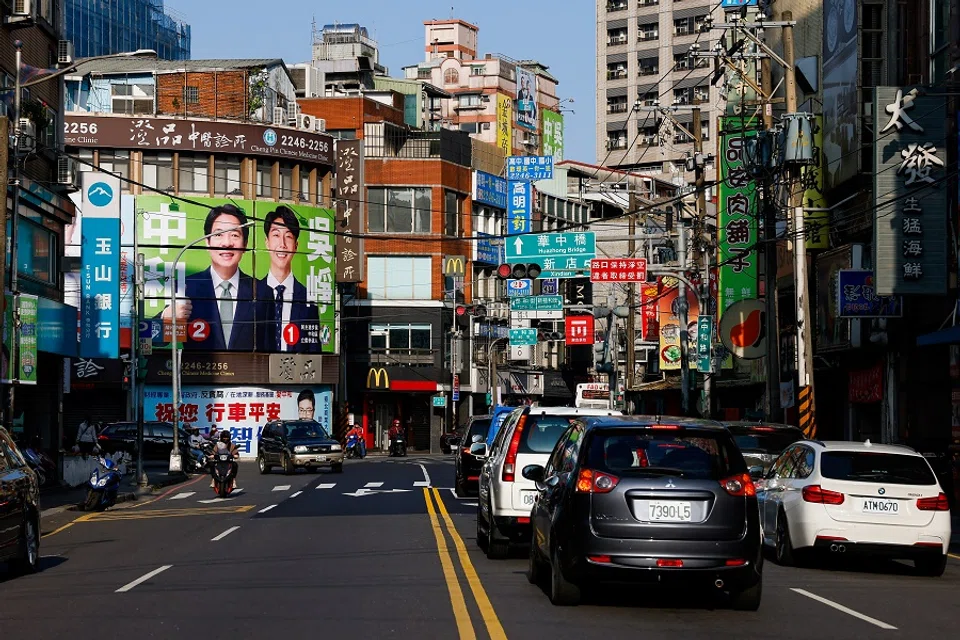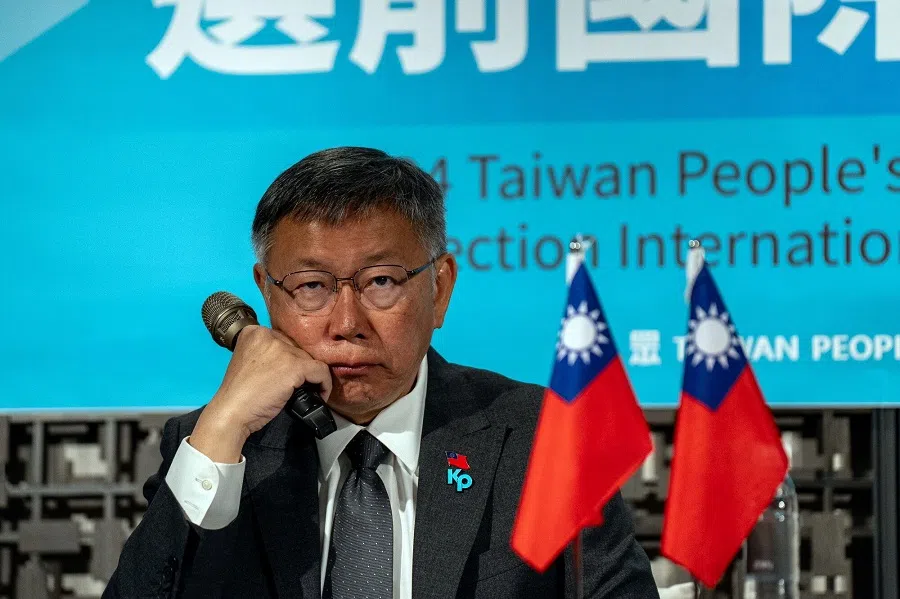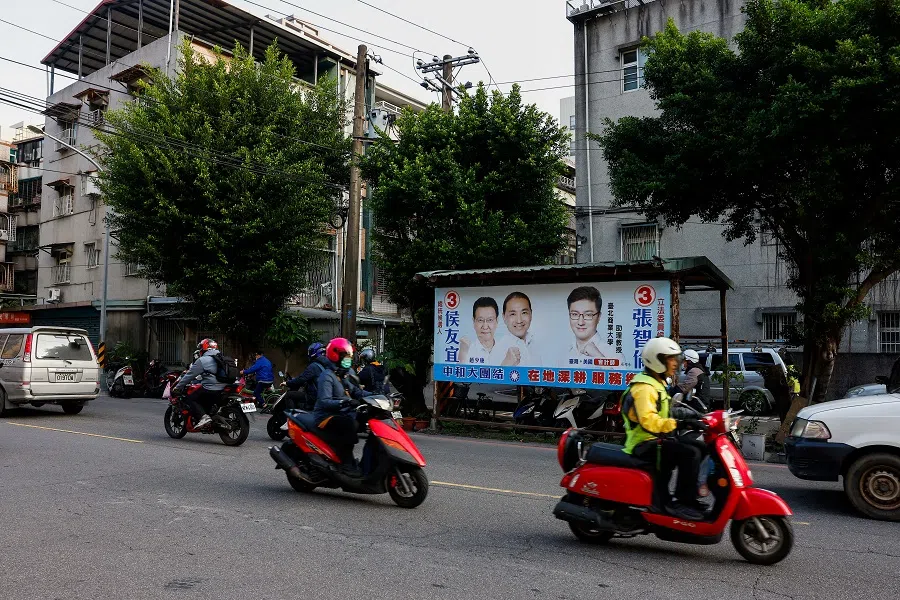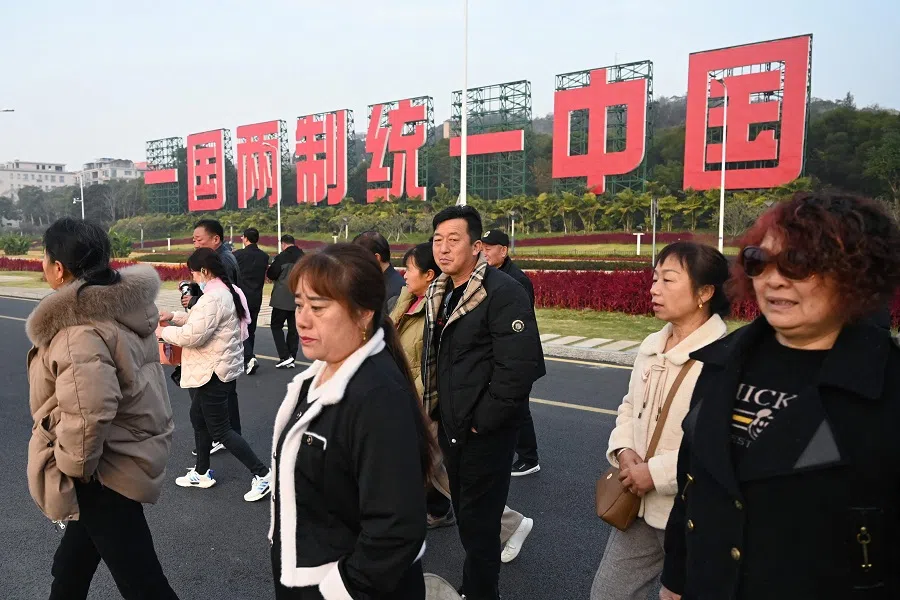Taiwan presidential election: A dull but important affair
With the Taiwan presidential election nearing its climactic end, Lianhe Zaobao associate editor Han Yong Hong notes there has been nothing fresh with election rhetoric, leading to a dull affair. Nonetheless, the election carries a lot of weight given its potential impact on cross-strait and China-US relations.

With just one day to go before the 2024 Taiwan presidential election, the hustings should be reaching a climax, i.e. the moment when spectators feel their hearts pounding. But in reality, the Taiwan elections seem to be entering the equivalent of "garbage time" in a basketball match, where the scores remain unchanged in a drawn-out affair.
... the ranking among the three presidential tickets remained unchanged, as if locked in place - new issues or exposés that surface barely make a dent, unable to truly steer the narrative or reverse election trends.
Same-old campaign rhetorics
That said, there has been no shortage of drama in Taiwan's political scene recently, with a slew of incidents, including an alleged exposé of a politician's involvement in sordid affairs, leaked recordings, an illegitimate child, mainland interference in the elections, the officials' "missile" gaffe, the controversy sparked by Ma Ying-jeou stating that it is necessary to believe in Chinese President Xi Jinping, a fraudulent open letter alleging Terry Gou's support of Hou Yu-ih, as well as the longstanding debate around the abolishment of the death penalty and the purchase of the Medigen vaccines.
Thus, it is not entirely accurate to say that the Taiwan elections have entered garbage time. In a basketball match, garbage time refers to a period during a match when the victor is clear, and the teams are just in the game waiting for the time to run out. But the Taiwan elections could still see an upset, and it is not cast in stone who would emerge victorious.
The leading Democratic Progressive Party (DPP) is under immense pressure, and it keeps slipping up and making mistakes. Meanwhile, the trailing Kuomintang (KMT) and the Taiwan People's Party are still giving it their all in the fight. But the ranking among the three presidential tickets remained unchanged, as if locked in place - new issues or exposés that surface barely make a dent, unable to truly steer the narrative or reverse election trends.
The main reason behind this state of affairs is how from the onset the two main Blue and Green camps have adopted a conservative approach of holding on to their traditional base of supporters. Whether it is their stance on Beijing or Washington, the wants of the electorate, or the limitations inherent in their parties, both camps have been unable to propose any fresh visions. Their rhetoric is either an extension of what they have espoused for the past eight years or building on something from even further back in history.
Ko proposed going beyond the Blue-Green divide, forming a new political culture - an idea that is very enticing to young voters. But his rhetoric is fuzzy on the details and was limited in its ability to attract older voters.

The DPP's campaign ad "On the Road" (在路上) points towards continuing on its original path, while the KMT's blockbuster campaign ads conjure up memories of 2008, when Ma took office. It is no wonder that both camps are unable to go beyond their traditional base and attract new supporters, even losing ground to a third force - Ko Wen-je's White camp.
Ko proposed going beyond the Blue-Green divide, forming a new political culture - an idea that is very enticing to young voters. But his rhetoric is fuzzy on the details and was limited in its ability to attract older voters.
The Taiwan elections this time round lack novelty, and the three presidential candidates are not as charismatic as compared with those from past elections. And yet, this is the most important election for Taiwan in years; who the voters put in office would not only determine Taiwan's future, it would also impact China-US relations as well as peace in Asia-Pacific. Major countries in the world have no choice but to pay close attention.
High cost of war
The higher-ups in China and the US are on tenterhooks. Over the past few days, Liu Jianchao, director of the International Liaison Department of the Central Committee of the Chinese Communist Party, paid a visit to the US to meet with Jon Finer, the US principal deputy national security adviser. Chinese and US defence officials have resumed talks, while commerce ministers from both sides have also held a telephone conversation, evidently hoping to stabilise bilateral relations in the period before the Taiwan elections. They have even gone into final communications in preparation of the situation following 13 January, when the results of Taiwan's elections will emerge.
How much damage will be done to the global economy if war breaks out between both sides of the Taiwan Strait?

On 9 January, Bloomberg estimated the price tag at around US$10 trillion, equal to about 10% of global GDP, surpassing the blow from the Russia-Ukraine war, the Covid-19 pandemic and the global financial crisis.
Bloomberg's estimation model assumes that the US is drawn into the conflict and succeeds in enlisting allies in concerted and severe economic sanctions against China. Considering the importance of Taiwan in the global semiconductor industry and the Taiwan Strait to global shipping, along with the potential shocks to financial markets, Bloomberg estimates a 10% blow to global GDP, with Taiwan suffering a 40% blow and the mainland suffering a 16.7% blow. If the mainland launches a year-long blockade of Taiwan, global GDP would be down 5%, Taiwan 12.2%, the mainland 8.9% and the US 3.3%.
Bloomberg thus concludes that the cost of war over Taiwan would be so vast that even those unhappiest with the status quo should not risk changing it.
In the end, the Taiwan Strait, described as the "most dangerous place on earth", instead ironically became a place of consensus between the mainland and the US.
No breakthroughs
Can the status quo be maintained? Cross-strait relations are currently in the most delicate situation. On the one hand, the mainland has long labelled DPP's William Lai - the most likely winner of the election - as a "stubborn worker for Taiwan independence", and the risks facing cross-strait relations are thus higher than they were eight years ago when Taiwan President Tsai Ing-wen took office or in 2022 when Nancy Pelosi visited Taiwan.
Academics analysed that after the election on 13 January, Beijing could swiftly announce the suspension of the Economic Cooperation Framework Agreement or even immediately announce military exercises around the island as an act of deterrence.

But on the other hand, many signs point towards the fact that mainland China and the US are thinking about jointly managing Taiwan again, which is somewhat related to Lai. Beijing deems Lai as someone they do not wish to engage with, while the US is not entirely confident with Lai's ability to maintain the status quo, and Beijing knows this very well.
In the end, the Taiwan Strait, described as the "most dangerous place on earth", instead ironically became a place of consensus between the mainland and the US. This does not mean that Beijing will soften its economic pressure on Taiwan, just that the mainland and the US could cooperate to maintain peace across the Taiwan Strait.
Quoting people familiar with the matter, the Financial Times recently reported that the White House has tapped former deputy secretary of state James Steinberg and former national security adviser Stephen Hadley to visit Taipei after the Taiwan elections. They are expected to publicly express their support for Taiwan's newly elected leader, but more importantly to ensure that the cross-strait situation does not spin out of control.
Who will win the Taiwan presidential election on 13 January? Will the rare chance of cooperation between Beijing and Washington change? Nobody knows. The dullness of the 2024 Taiwan elections reflect the fact that all parties have exhausted the possibility of a breakthrough; although dull, it remains very important.
This article was first published in Lianhe Zaobao as "台湾大选歹戏拖棚?".



![[Big read] When the Arctic opens, what happens to Singapore?](https://cassette.sphdigital.com.sg/image/thinkchina/da65edebca34645c711c55e83e9877109b3c53847ebb1305573974651df1d13a)
![[Video] George Yeo: America’s deep pain — and why China won’t colonise](https://cassette.sphdigital.com.sg/image/thinkchina/15083e45d96c12390bdea6af2daf19fd9fcd875aa44a0f92796f34e3dad561cc)
